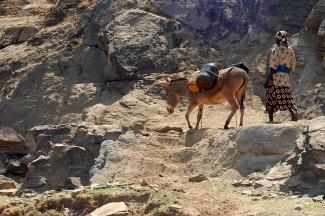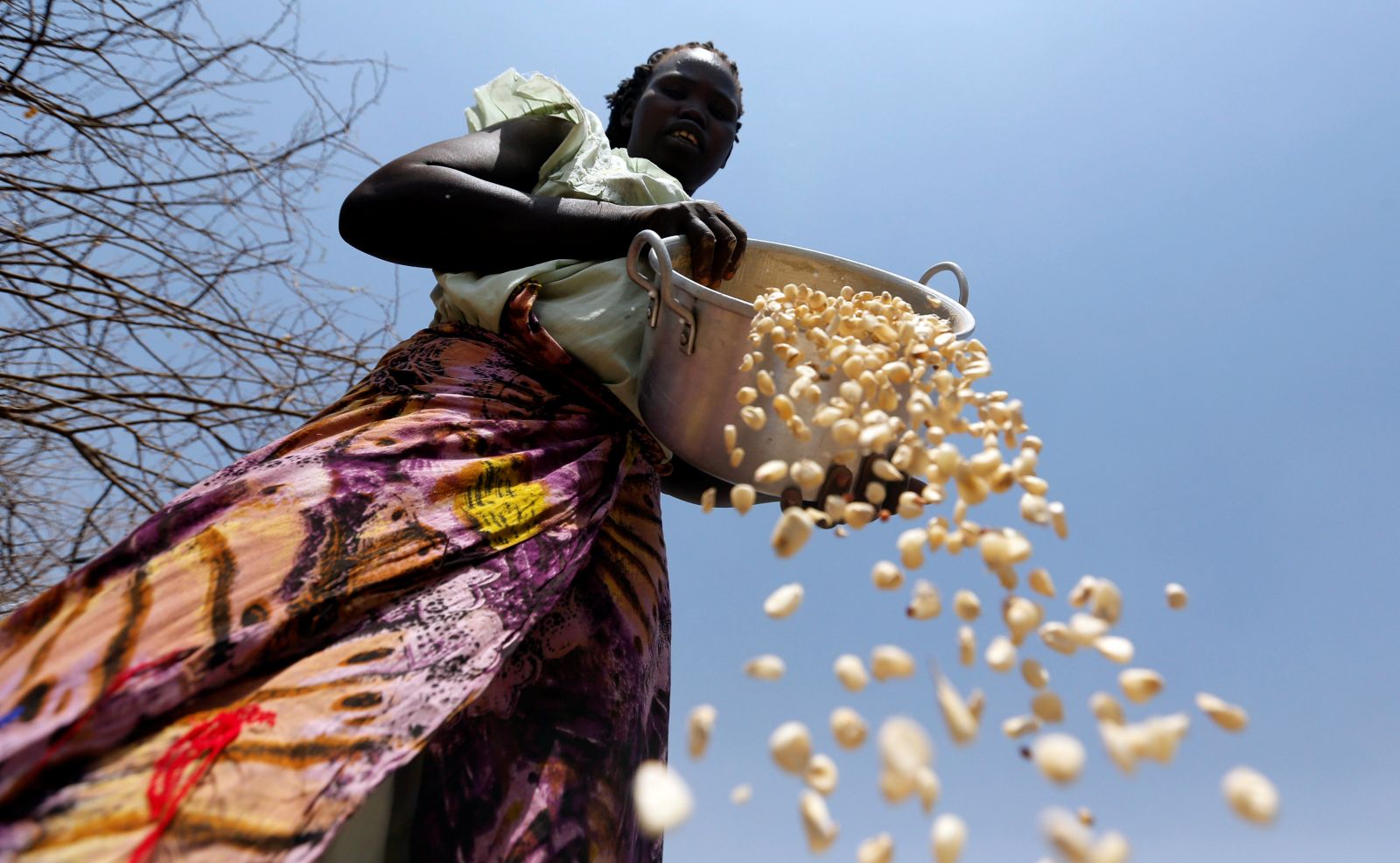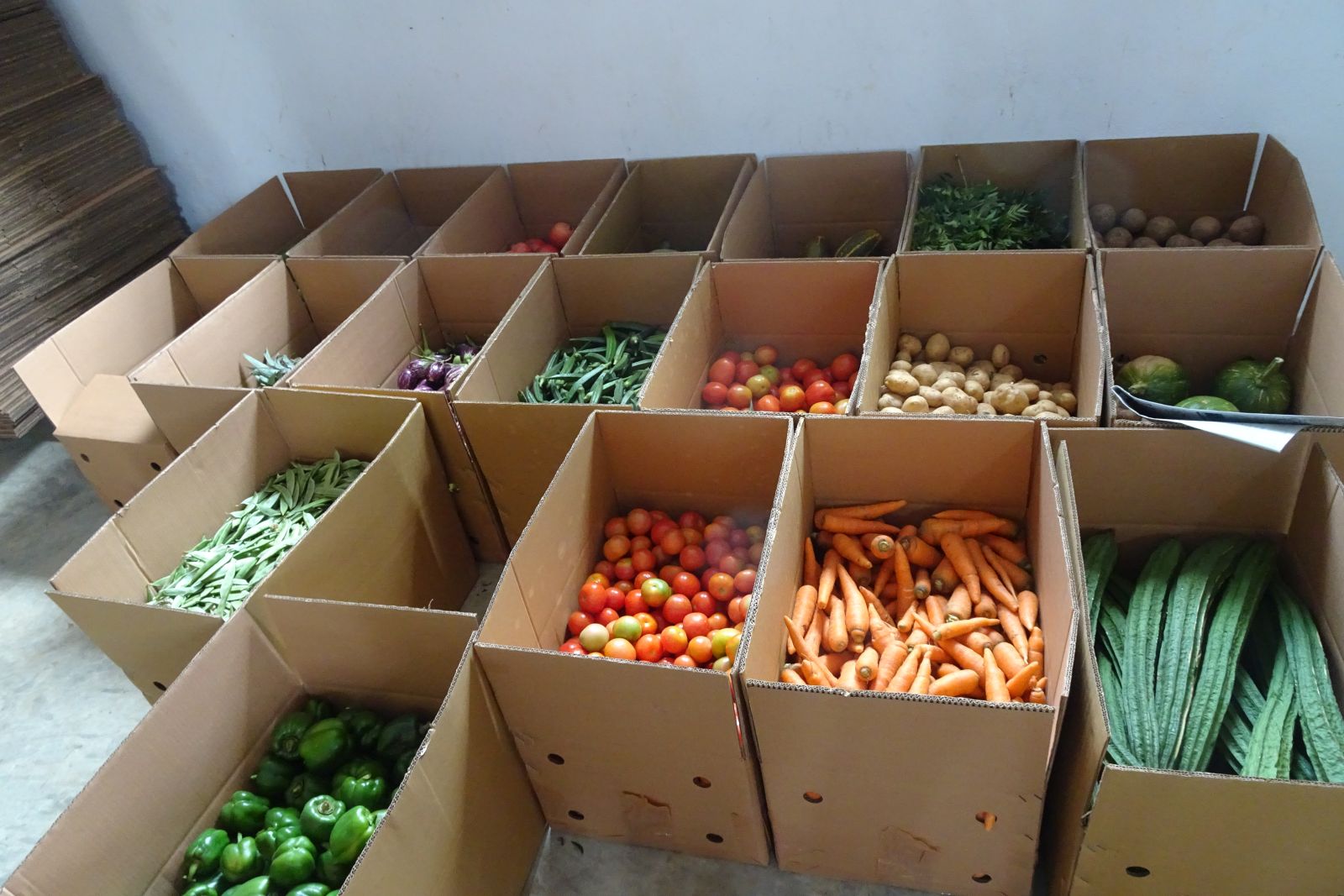Land degradation
Highland challenges

Mountain regions matter. They provide livelihoods to people living there as well as vital ecosystem services to lowlands. Indeed, about half of the world population depends on water resources and even food from mountain areas. It is thus alarming that rural mountain regions are increasingly suffering environmental decline and soil degradation. A study jointly published by the UN Food and Agriculture Organization (FAO) and the secretariat of the UN Convention to Combat Desertification (UNCCD) provides evidence.
Food security is particularly at risk in mountain regions. Many mountain dwellers live in remote areas where basic services are scarce and infrastructure is poor. The nearest market may well be a three or four hours’ drive away – and that is true of educational and health facilities as well.
Mountain farming is done in fragile ecosystems. Soils are typically of poor quality and exposed to extreme weather conditions. Especially during winter or the wet season, large quantities of snow and extensive flooding may undermine agricultural efforts. In many places, changing land use and violent conflict aggravate the situation.
The authors warn that soil degradation is driven by profit interests that do not take into account environmental impacts. Far too often, agriculture is geared to high yields with no regard for sustainability. As a result, soil quality is deteriorating fast in many mountain regions.
Protecting the environment, combating soil degradation and adapting to climate change are imperative, the study insists. Organic carbon stocks in the soil must be regenerated and mountain ecosystems preserved. That would require government action, but serve the protection of biodiversity and safeguard people’s standards of living. Improving agricultural valuechains could drive economic development.
In East Africa, decreasing food security in rural mountain areas is particularly alarming, according to the study. Rapid soil degradation and the enormous population growth are endangering agricultural production. The population of East Africa has increased by almost 1.5 % in a mere five years, growing much faster than the world average, the UN experts state.
They demand that the rights of rural women must be ensured and natural resources must be protected. Otherwise, neither environmental nor economic sustainability will be possible. Women matter in particular because they tend to still depend heavily on natural resources in daily household management. Soil degradation is reducing their access to fertile land. The less fertile plots become, the more labour-intensive the production of staple food will be. Such downward spirals may have a negative impact on the economic opportunities of women. Moreover, girls’ educational opportunities will suffer too if they are forced to do more farmwork instead of going to school.
The authors also call for regular and systematic collection and publication of data on food security and soil degradation in mountain regions. Solid evidence is needed to draft effective poverty-reduction strategies and environmental protection programmes.
Link
FAO and UNCCD, 2019: Vulnerability to food insecurity in mountain regions. Land degradation and other stressors.
http://catalogue.unccd.int/1249_Mountains_GM_CA6015EN.pdf












